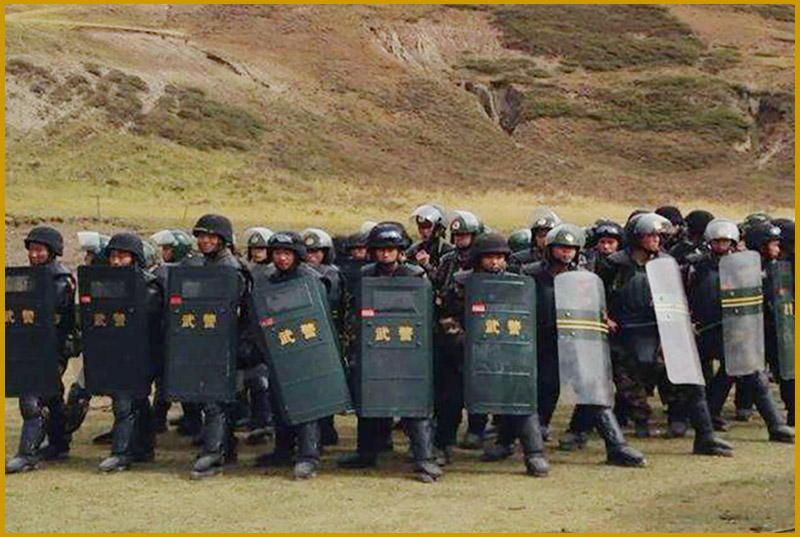 Dharamshala — Emerging sources say Chinese authorities have expelled more than 100 monks and nuns from their monasteries and nunneries in Driru County, eastern Tibet and seven monks severely beaten and held after staging protest. A newly built nunnery has been closed down and completely demolished.
Dharamshala — Emerging sources say Chinese authorities have expelled more than 100 monks and nuns from their monasteries and nunneries in Driru County, eastern Tibet and seven monks severely beaten and held after staging protest. A newly built nunnery has been closed down and completely demolished.
“A total of 53 monks were expelled from three monasteries in Driru County, Kham region of eastern Tibet (Ch: Biru county, Tibet Autonomous Region): 18 from Driru Monastery, 15 from Choeling Monastery between October 16-18, 2014 and 20 monks were expelled from Gonsar Monastery, on October 20, 2014,” Ven Dasang, a Tibetan monk living in exile told the Tibet Post International (TPI) on Wednesday (April 1).
“Fifty Tibetan nuns were also expelled from Golung Nunnery in the same county, on October 20, 2014 and the details, including current situation remain unknown,” he said, citing the sources in the region.
The buildings of Gaden Bhug Nunnery were pulled down at the County, on October 20 last year by local authorities under orders from the Driru county government,” sources said, adding “the reconstruction is unauthorised as the nunnery is not found among the list of registered religious institutions.
“All the nuns were expelled following and the details, including their names are still unknown,” he said.
“The seven monks of Golung Monastery in the County were arbitrarily arrested and severely beaten by police following their protest in front of the government “Work Team office at the monastery, between July 23-24, 2014,” he said.
“The seven monks identified as Lhakpa 17, Dudul 15, Tadrin Tsering 16, Gyalpo 19, Choeyang Samdup 19, Lama 16, and Konchok Dadul 17 from Driru County. The monks protested against Chinese officials’ false, misleading and evasive actions toward their monastery” sources added.
However news only reached Tibetans in exile after months due to heavy restrictions on information and tightened security in the area.
Monasteries and nunneries in the County were targeted by Chinese authorities after monks and nuns refused to agree with a five-point political pledge: to oppose the idea of an independent Tibet; to denounce the Dalai Lama; to recognise the Chinese-appointed Panchen Lama; to oppose those advocating independence of Tibet; and to work for the unity of the “motherland”. Those who resist face severe punishment in the form of expulsion or arrest.
Chinese authorities barred foreign journalists from visiting Tibet after that March 2008 peaceful protests. Since then the regime has imposed severe restrictions on internet and phone connections by increasing a wider crackdown on communications across Tibet in an attempt to prevent any news reaching the outside world.
In Tibet today, Tibetans are being arbitrarily arrested, imprisoned and tortured for merely expressing their suffering under Chinese rule. However, authorities in Beijing still claim that “China ‘peacefully liberated’ Tibet, and that the “Tibetans are living in a Maoist socialist paradise.”
But, a China appointed Tibetan official Pema Trinley recently claimed that ‘there was no ban on foreign journalists traveling to the region.’




 Print
Print Email
Email